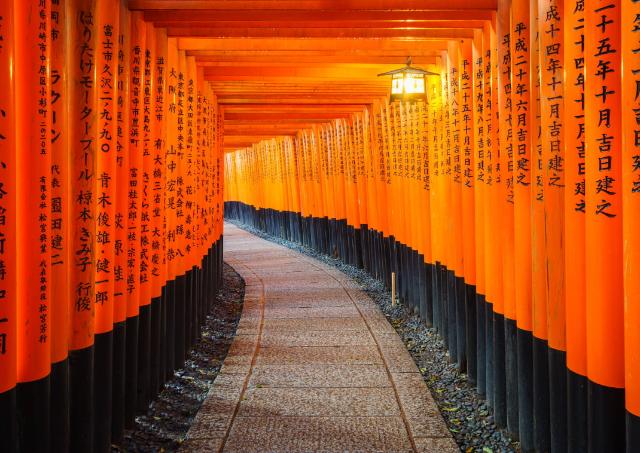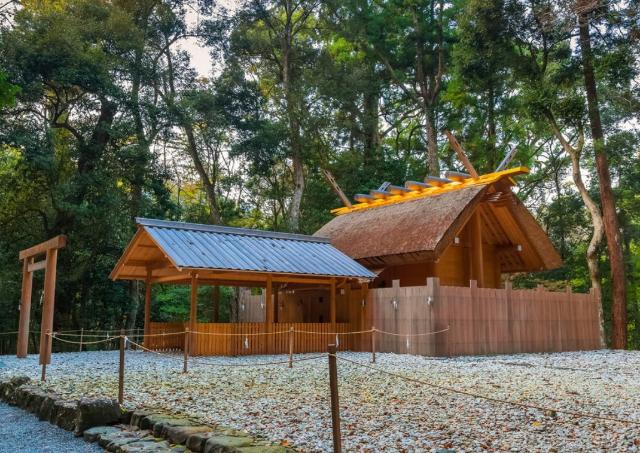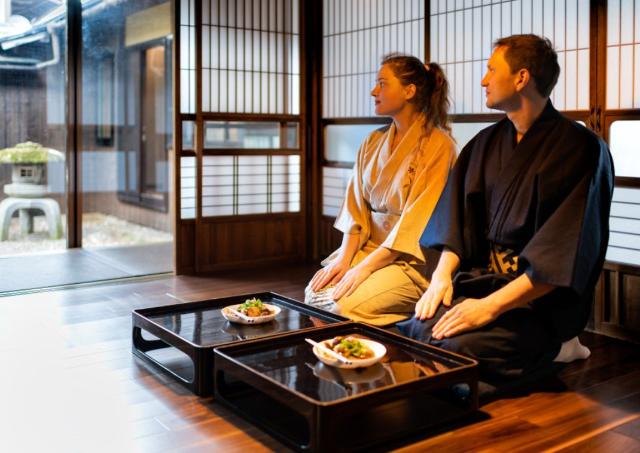Spending a Night in a Japanese Temple: What to Expect
When hearing about experiencing Shukubo, spending a night at a Japanese temple, the first things that might come to mind are prayers, meditation, strict rules, and (very) light meals. Well, some of that is true but believe us: it is way better than it looks.
Spirituality is a big part of Japan’s heart and soul. When travelling, you will stumble upon temples, sanctuaries, altars, and other signs of a religious presence everywhere – especially in the places where you least expect it. If you are curious about the way the mundane and the spiritual are entangled in Japan, we would recommend you try Shukubo during your stay here.
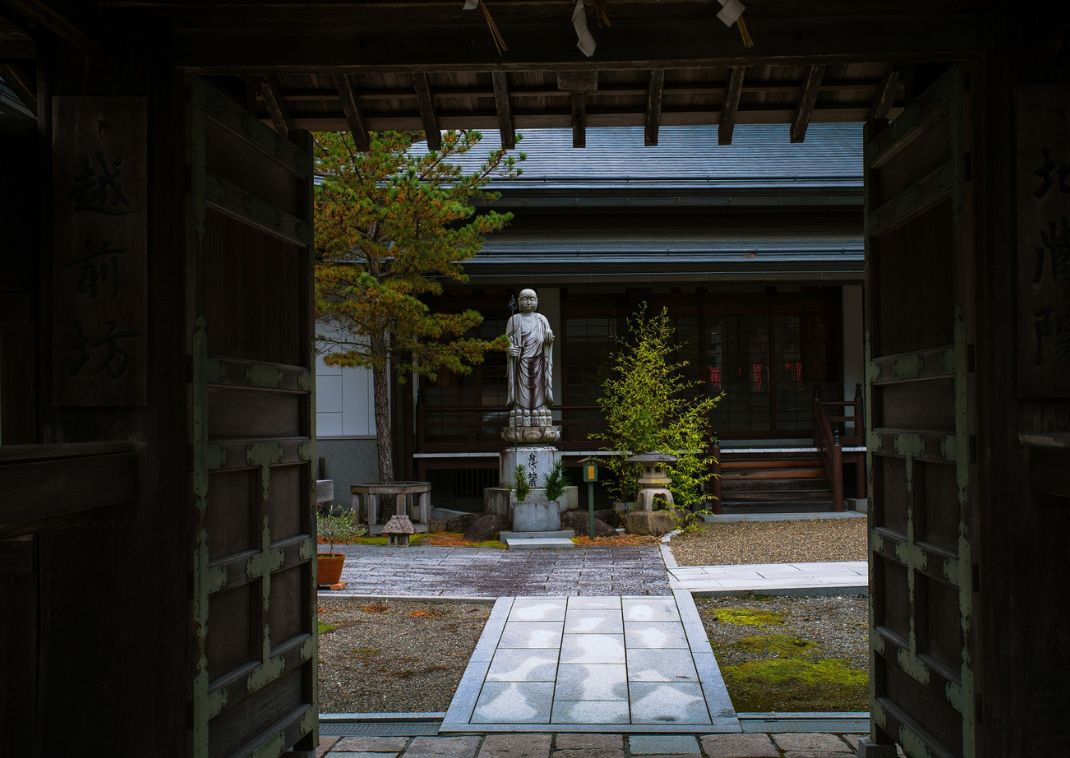
What Is Shukubo?
Shukubo is a service that some temples in Japan offer to pilgrims or tourists. You can experience Shukubo exclusively in designated temples – as in Buddhist temples, but not in Shinto sanctuaries for instance. They are the perfect opportunity to discover more about the lifestyle of monks as well as a chance to take a step back from a busy life and meditate.
The most famous place when it comes to Shukubo is Koyasan, located in Wakayama Prefecture. Often called the most spiritual city of Japan, it is composed of no less than 52 temples welcoming guests from all over the country and the world. It used to be home to more than 2,000 temples back to the 17th century but even in Japan, religion and spirituality have been on the decrease for years now.
Koyasan is not the only place to experience temple lodging in Japan, but it is by far the most convenient, not to mention the relatively secluded location inside the mountains and woods, as well as some impressive historical heritage. Don’t miss the cemetery at dawn, get lost between the realms of the living and the spirits surrounding us.
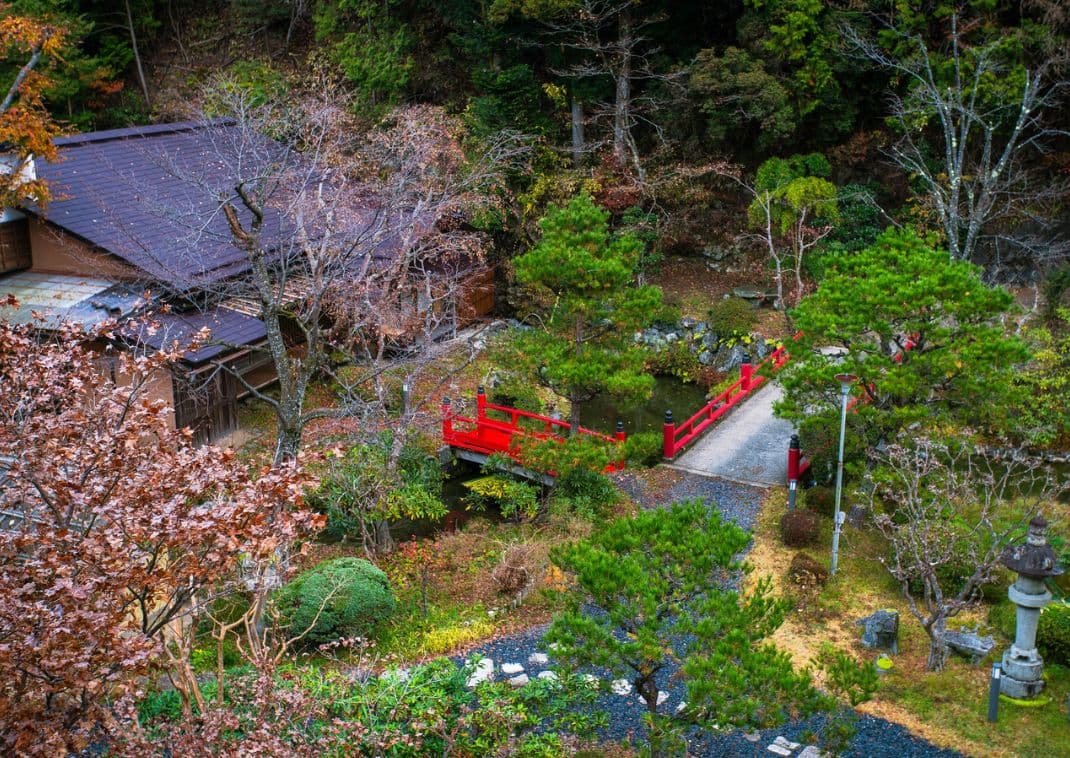
Do you have to be a Buddhist to stay in a temple? No! Shukubo is open to anybody willing to respect the temple rules, may you be agnostic, or of any religion. The monks will welcome you as a guest, but not as a “colleague”.
Usually, some activities will be open to visitors such as the 6 o’clock prayer or some meditation sessions but nothing is mandatory and you can wander in the town, or the open parts of your host temple as much as you like. The religious or historical treasures of the temple, and splendid pieces of Buddhist arts, the gardens are usually accessible. Nonetheless, you will experience the stillness and calm that comes from within the very walls of your temple for the night.
It Must Be Expensive…
Well, not really. If you compare the price of a night in a Japanese temple to a traditional Ryokan, you might be surprised as they will be quite similar… including the services offered. In both types of lodgings, you will usually have access to an Onsen or Sento (Japanese type of hot spring), bedding to die for, a tatami room equipped with Wi-Fi, and complimentary tea and local snacks when you enter your room.
The main difference might come from the meal, that will be Shojin Ryori in a Japanese Temple: monks are vegetarian and developed a typical (and delicious) cuisine based on soy, vegetables, or konyaku. These meals are not always included in your nightly rate and can be quite expensive but it’s worth it as they are unique and delicious – even without any meat, additives, strong sauces, or spices. Shojin Ryori is an experience in itself.
The typical fee for a night with dinner and breakfast included will vary between ¥9,000 and ¥15,000 – and if you didn’t book online, bring cash (this advice is good for any place in Japan as it is a paper-based country!).
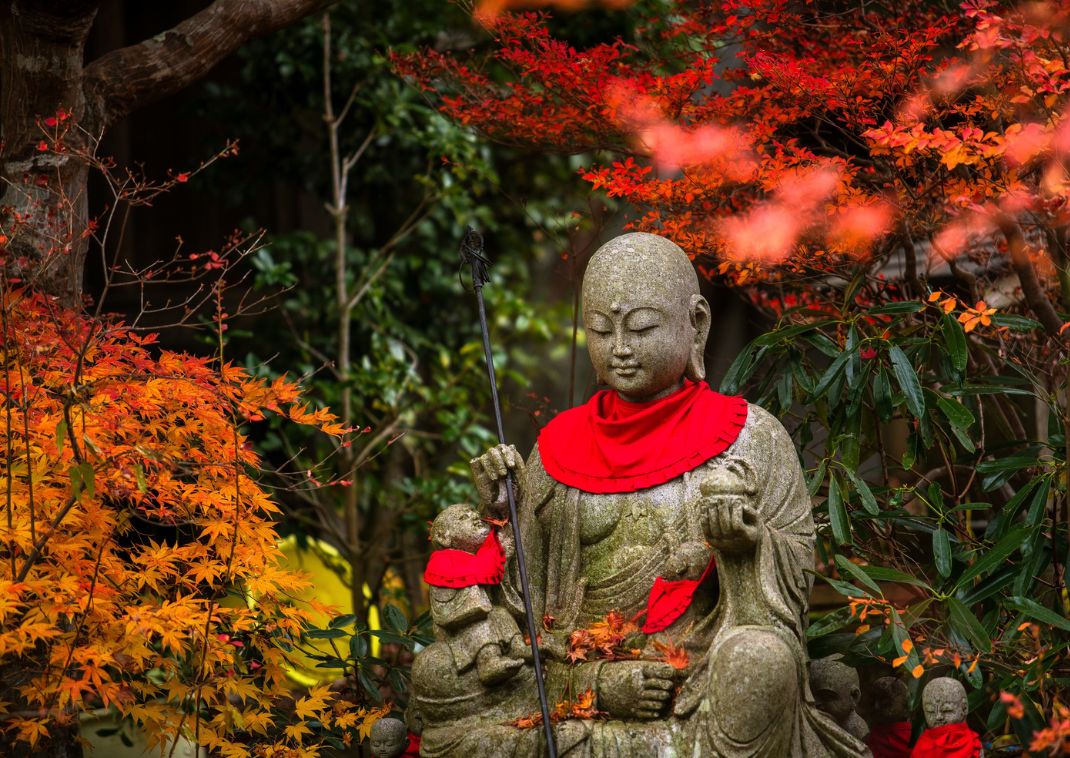
…and Hard to Book
Not quite. The temples have adapted to the modern world and its technologies, and most of them can be found online on their website or via a Shukubo association. They don’t always speak English though and picking the right one can be a daunting experience. Don’t hesitate to ask one of our consultants if you have dietary requirements or special needs for your stay.
As a popular travel destination, the town of Koyasan is becoming more open to tourists by the day and it’s getting way easier to book and visit the place even if you don’t speak Japanese. Kindly note that the magic of Koyasan also resides in the fact that it is a secluded location – around 80 kilometres south of Osaka – and there are no direct routes by train from any of the surrounding big cities. Our recommendation is to rent a car. Otherwise, you will have to take a train from Osaka, then transfer to a cable car to the top of Koyasan and finally ride a bus to the city centre. For other Shukubo destinations, it will highly depend on the location of the temple, but they are usually in remote locations and you might need to take a bus to reach them. Some are also on pilgrimage paths so hiking can be an option too!
I’m in, what else should I know? Even if you are not required to behave like a monk, you still have to adapt your lifestyle a bit.
Dinner will usually be served around 5.30pm or 6pm (yes, that’s early!) so be ready and don’t expect to be served at 8pm. That means that you should pack some snacks in your room just in case your biological clock rings later that night. Your room is private, and you can do anything that you would do in a typical hotel room, just be mindful of your neighbours.
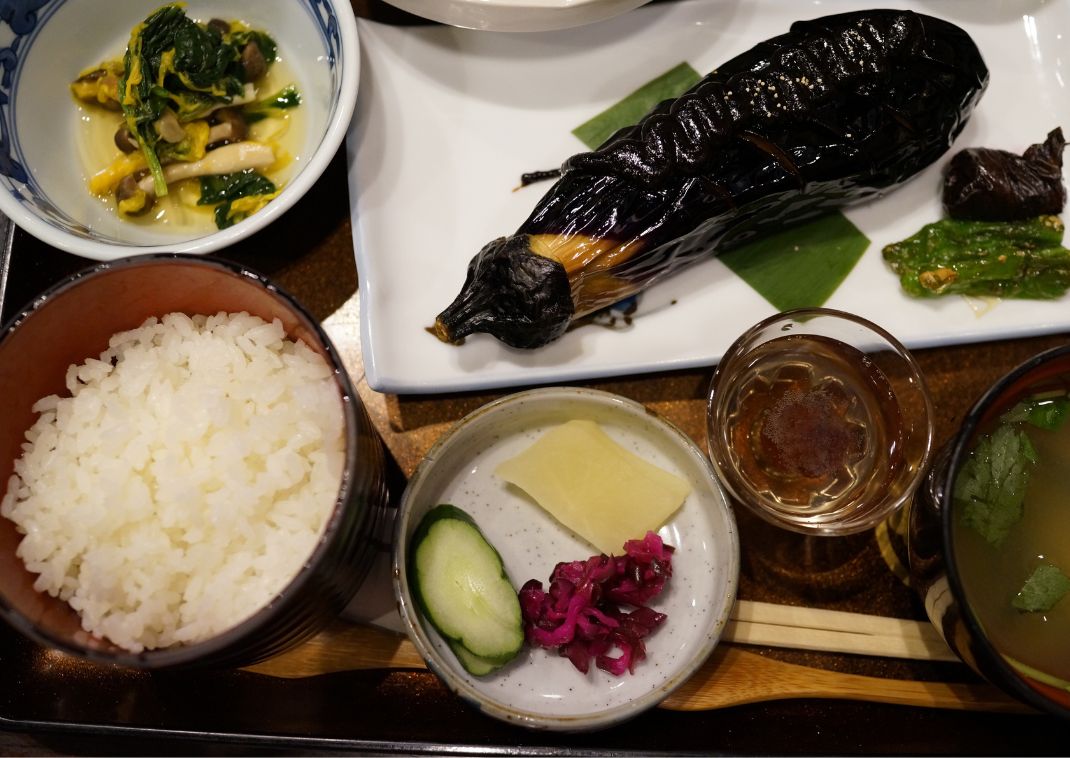
Depending on the place you are staying at bathrooms and toilets may also be private but most of the time they will be shared (going to the toilet, alone, in a sleeping temple is quite an experience too). As you are staying “with” the monks, your room might not have a lock but usually, you will have a vault at your disposition to protect your valuables if you don’t feel comfortable.
In any case, a monk will explain all the temple rules to you upon arrival as well as dinner, breakfast, and activity schedule for you to enjoy during your stay.
Final Note
Shukubo is a unique experience that truly embodies the spiritual and religious way of life in Japan: we recommend you include a night in a Japanese temple on your Japanese trip!
To extend that experience and enjoy the pleasures of a stay in such a calm and resting place, we would also recommend you explore your surroundings. Temples and sanctuaries are reputed in Japan as “power spots”, meaning they hold a deep spiritual value and power that you can benefit from. May you believe it or not, there is no way you won’t enjoy the atmosphere and rest these places can provide.
To create the perfect Shukubo experience, reach out and book a consultation: extend the stress-free Shukubo experience up to your booking!

